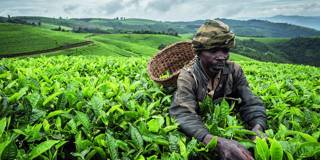After the devastating blow that COVID-19 dealt to low- and middle-income countries, the economic fallout from Russia's war in Ukraine has compounded the damage by driving up the prices of key commodities. Building more resilience and sustainability into the world's food systems has never been more urgent.
NAIROBI – In recent years, successive shocks have undermined global food security, reversing decades of progress. COVID-19, for example, pushed 70-100 million people into extreme poverty and 118 million more into food insecurity (defined as a “lack of regular access to enough safe and nutritious food for normal growth and development and an active and healthy life”). In East Africa, the worst locust swarms in 70 years deepened food insecurity in a region that was already struggling with significant drought. And now, Russia’s war in Ukraine has further exposed fragilities in the world’s food systems.

NAIROBI – In recent years, successive shocks have undermined global food security, reversing decades of progress. COVID-19, for example, pushed 70-100 million people into extreme poverty and 118 million more into food insecurity (defined as a “lack of regular access to enough safe and nutritious food for normal growth and development and an active and healthy life”). In East Africa, the worst locust swarms in 70 years deepened food insecurity in a region that was already struggling with significant drought. And now, Russia’s war in Ukraine has further exposed fragilities in the world’s food systems.